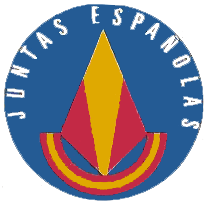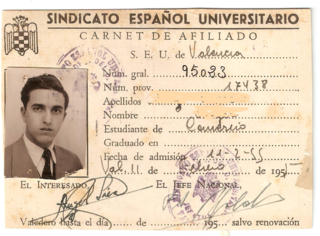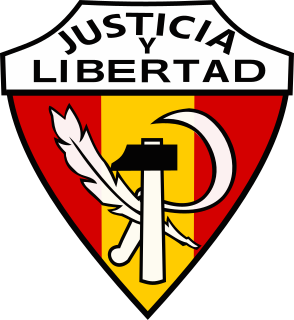 W
WNational syndicalism is adaptation of syndicalism to suit the social agenda of integral nationalism. National syndicalism developed in France, and then spread to Italy, Spain, and Portugal.
 W
WAction française is a French far-right monarchist political movement. The name was also given to a journal associated with the movement.
 W
WThe British Union of Fascists (BUF) was a British fascist political party formed in 1932 by Oswald Mosley. It changed its name to the British Union of Fascists and National Socialists in 1936 and, in 1937, to the British Union. It was disbanded in 1940, after it was proscribed by the British government following the start of the Second World War.
 W
WFalange Auténtica is a Falangist political party in Spain. FA emerged in 2002 as a split from FE/La Falange. FA claims to represent the heritage of the dissolved Falange Española de las JONS (Auténtica) (FE-JONS).
 W
WFalange Española Independiente was a Spanish political party registered in 1977, originating from the Frente de Estudiantes Sindicalistas (FES), a student group of anti-Francoist falangists.
 W
WThe Falange Española Tradicionalista y de las Juntas de Ofensiva Nacional Sindicalista was the sole legal party of the Francoist regime in Spain. It emerged in 1937 from the merger of the Carlist Party with the Falange Española de las JONS and was dissolved in 1977 by Adolfo Suárez's transitional government.
 W
WThe Falange Española de las Juntas de Ofensiva Nacional Sindicalista, was a fascist political party founded in 1934 as merger of the Falange Española and the Juntas de Ofensiva Nacional-Sindicalista. The Falange Española de las JONS, which became the main Fascist group during the Second Spanish Republic, ceased to exist as such when, during the Civil War, General Francisco Franco merged it with the Traditionalist Communion in April 1937 to form the similarly named Falange Española Tradicionalista y de las JONS, which became the sole legal party in Spain until its dissolution in 1977.
 W
WThe Fasces of Revolutionary Action were a movement founded in 1915 by Benito Mussolini.
 W
WThe Italian Fasces of Combat was an Italian fascist organization, created by Benito Mussolini in 1919.
 W
WThe Futurist Political Party was an Italian political party founded in 1918 by Filippo Tommaso Marinetti as an extension of the futurist artistic and social movement. The party had a radical program which included promoting gender parity and abolishing marriage, inheritance, military service and secret police. The party was absorbed into the Fasci Italiani di Combattimento in 1919.
 W
WJuntas de Ofensiva Nacional-Sindicalista (JONS) was a nationalist and fascist movement in 1930s Spain, merged with the Falange Española into the Falange Española de las JONS in 1934.
 W
WJuntas Españolas was a far-right political party in Spain created in 1983 after a call was issued through the defunct newspaper El Alcázar by the newspaper's director, Antonio Izquierdo. The group also followed the failure and self-dissolution of the Fuerza Nueva of Blas Piñar.
 W
WThe Mexican Democratic Party was an ultra-Catholic social conservative political party in Mexico that existed between 1979 and 1997. At its height in 1982, the party had over 500,000 active voters and 12 seats in the Mexican Chamber of Deputies.
 W
WThe Movimiento Nacional was the name given to a governing institution established by General Francisco Franco during the Spanish Civil war in 1937. During Francoist rule in Spain, it purported to be the only channel of participation in Spanish public life. It responded to a doctrine of corporatism in which only so-called "natural entities" could express themselves: families, municipalities and unions. It was abolished in 1977.
 W
WNational Rebirth of Poland, abbreviated to NOP, is an ultranationalist national-revolutionary far-right political party in Poland registered by the District Court in Warsaw and National Electoral Commission. As of the 2015 election, the party had no seats in the Polish parliament. It was a member of the European National Front.
 W
WThe National Synarchist Union is a Mexican political organization. It was historically a movement of the Roman Catholic extreme right, in some ways akin to clerical fascism and falangism, implacably opposed to the left wing and secularist policies of the Institutional Revolutionary Party (PRI) and its predecessors that governed Mexico from 1929 to 2000 and 2012 to 2018.
 W
WThe National Syndicalist Movement was a political movement that briefly flourished in Portugal in the 1930s. Stanley G. Payne defines them as a fascist movement in his typography.
 W
WCercle Proudhon was a National-syndicalist political group founded in France on December 16, 1911 by Georges Valois and Édouard Berth. The group was inspired by Georges Sorel, Charles Maurras and a selective reading of anarchist theorist Pierre-Joseph Proudhon.
 W
WThe Sección Femenina was the women's branch of the Falange political movement in Spain. Founded in July 1934 as part of the Sindicato Español Universitario (SEU) of the Falange Española de las JONS, and fully incorporated to FE de las JONS later in the year, it remained as part of the FET y de las JONS following the 1937 Unification Decree, subsequently becoming an official institution of the single-party of the Francoist dictatorship. Following General Franco's death and the beginning of the transition to democracy it was disbanded on 1 April 1977 together with all Movimiento Nacional institutions. Sección Femenina was led throughout its history by Pilar Primo de Rivera, the younger sister of Falange Española founder José Antonio Primo de Rivera.
 W
WThe Sindicato Español Universitario was a corporatist students' union in Spain, created in the 1930s during the Second Spanish Republic, by the Falange Española under the leadership of José Antonio Primo de Rivera. The SEU was inspired by students' unions linked to contemporary fascist parties of Italy and Romania.
 W
WThe Sindicatos Libres was a Spanish company union born in Barcelona, Catalonia. It was established by Carlist workers, and remained active during the early interwar period as a counterweight to the anarcho-syndicalist Confederación Nacional del Trabajo. The group aided employers take action against striking unionists, and was thus criticized as a "yellow union" with proto-fascist leanings; however, its regular members were in practice freely moving between right- and left-wing unionism. The Sindicatos lost momentum during the dictatorship of Miguel Primo de Rivera, and eventually dissolved when the Second Spanish Republic was proclaimed.
 W
WThe Spanish Syndical Organization, popularly known in Spain as the Sindicato Vertical, was the sole legal trade union for most of the Francoist dictatorship. A public-law entity created in 1940, the vertically-structured OSE was a core part of the project for frameworking the Economy and the State in Francoist Spain, following the trend of the new type of "harmonicist" and corporatist understanding of labour relations vouching for worker–employer collaboration developed in totalitarian regimes such as those of Nazi Germany and Fascist Italy in the first half of the 20th century. Up until the early 1950s, it internally worked—at least on a rhetorical basis—according to the discourse of national syndicalism. Previous unions, like the anarchist CNT and the socialist UGT, were outlawed and driven underground, and joining the OSE was mandatory for all employed citizens. It was disbanded in 1977.